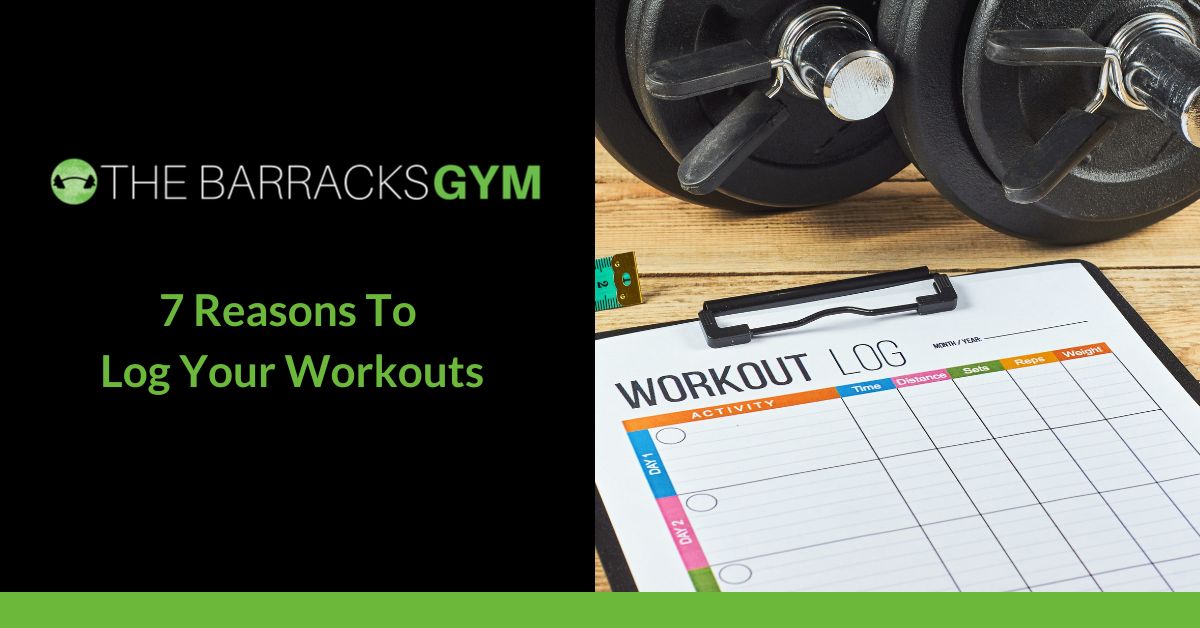|
Joining the Australian Defence Force requires meeting a certain level of fitness. Taking your training seriously is essential when training for your Physical Fitness Assessment. One way to do this is to get into a habit of logging your workouts. Logging your workouts has many benefits, from helping you to track progress to motivating you to maintain a routine. Below are 7 great reasons to start a workout log. #1. Improve Adherence For your training to be successful, you need a programme designed specifically for your fitness goals while also considering your unique lifestyle and needs. However, you will only succeed if you adhere to your plan and complete your workouts consistently as prescribed. Keeping a workout log can help you with that. You might want to use a notebook and pen. Diaries can also be great for logging workouts - you'll soon get guilty if you start leaving too many blank pages. Still, apps can be perfect for logging workouts as they can send you reminders and prompts to encourage you to carry out your session on a specific day. #2. Set Better Goals Logging your workouts can also help you to set goals from one week to the next. You can record the time and distance it took to run a route and then aim to run it quicker or run a longer course the following week. Alternatively, if you're training for strength in a gym, you can record your sets along with a difficulty rating and then challenge yourself to up your rates or increase the weights progressively. Regarding ADF training, you may want to log your numbers on push-ups and sit-ups and possibly even keep track of your beep test score. However, you don't need to perform the assessment exercises every week, but logging your workouts and testing yourself once in a while will show you whether or not your programme is working. Then, if needed, you can tweak it and set different goals. #3. Track Your Progress One of the main reasons anybody is logging their workouts is to be able to keep an eye on their progress and adjust their plan if needed. This becomes even more important when you have a specific preparation timeframe for your PFA. The shorter you have, the more ambitious and committed you'll need to be to hit your weekly goals. While we know exactly what your end goal is for your assessment day, ideally, you'd like to achieve them well before your PFA and then some, so you can be confident on the day you have it in you. Being confident doesn't only help you perform at your best and decreases the chances you'd develop performance anxiety on the day. #4. Celebrate Wins You could also find that a workout log motivates you to keep going by letting you see how far you need to go to meet your fitness goals and how far you've already come. Seeing that you've come so far could help inspire you to keep going and allows you to recognise and celebrate your progress. #5. Identify When to Tweak A workout log also helps you identify when to change your exercise programme. If you're exceeding in a particular area but falling behind in another, you could consider switching your focus to working on your weakness. Recording how difficult you find your workouts can be useful in helping you to make changes. If you find an exercise too easy, you can try to make it more challenging. If you find training too tough and feel overexerting yourself, you can ease off or find an alternative that works better for you. #6. Share Results for Accountability Logging your workouts allows you to share your results and progress with friends, family, or a coach. For instance, our TBG community members are happy to share their progress with others and ask for feedback on areas where they need input. They are also happy to celebrate the wins of other TBG family members and encourage each other to perform at their best. #7. Track Your Feelings, Fatigue and More A good workout log should not just track exercise stats but also your feelings, rate of perceived effort and after-effects. On top of how difficult you found each session, it could be essential to record positive and negative thoughts that may be affecting your training. Identify problems affecting your workout, such as too many people at the gym or your clothes being uncomfortable. You can also record how your body feels within a few hours and the next day after a session. Ideally, you'd like your sessions to be just the right amount of load, so you can improve, but not too much so that you struggle walking for days. ConclusionWhat gets measured gets achieved, as the saying goes. Since the fitness targets are specific for your Physical Fitness Assessment day, the best way to understand whether or not your body is ready for your PFA is to keep an exercise diary. Choose the method that works best for you. TBG programs come with the ability to log your sessions so you can monitor your progress. Check them out here.
0 Comments
Leave a Reply. |
Most PopularTrusted PartnerWe work with the best service provider for Defence and First Responders.

Get SocialCategoriesArchives
January 2024
|
© COPYRIGHT 2024. ALL RIGHTS RESERVED.


 RSS Feed
RSS Feed